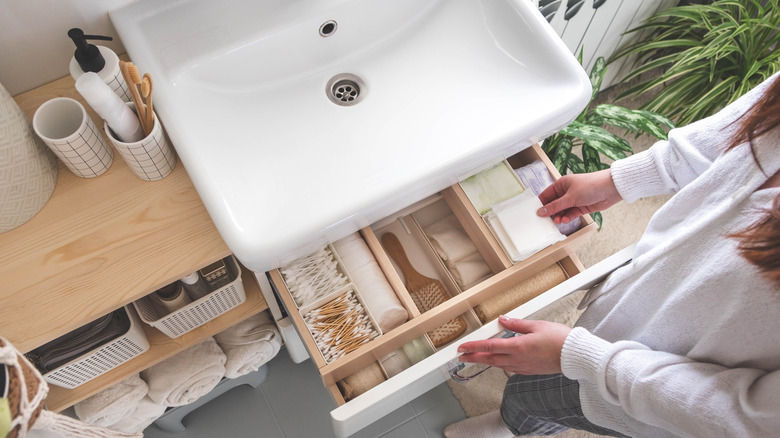Stay Motivated When Decluttering Your Home With A Tip For Recognizing Progress
We may receive a commission on purchases made from links.
Feeling overwhelmed with clutter in your home? There are many clutter-causing practices that can fill your home with lots of little items. A cluttered space can negatively affect your concentration, productivity, and mood. Decluttering is a simple solution, but it's not always that easy to accomplish. You might not know where to start or you may lose motivation quickly. That's where the progress principle comes in. The idea is to start with decluttering projects that let you see lots of progress in a short amount of time. This will keep you motivated to continue decluttering more challenging areas.
This idea comes from the 2011 book, "The Progress Principle: Using Small Wins to Ignite Joy, Engagement, and Creativity at Work", which was written by Teresa Amabile and Steven Kramer. They discovered that small wins toward making progress in the workplace usually made for the best days at work. Bad days often happened with people didn't see that they were making progress or when they hit roadblocks.
Applying that theory to your decluttering project, setting yourself up for small wins can help you enjoy the process and stay motivated. When you see progress, it pushes you to continue sorting through your belongings. You get a sense of accomplishment when you can see physical evidence that your efforts are working. Once you get your decluttering project rolling, you can focus on ways to prevent clutter from accumulating to keep your home tidy and simplified.
Using the progress principle when decluttering
Seeing progress is often easier when you use a micro-decluttering approach. The idea is to pick one small area or decluttering task that you can do in 10 to 15 minutes. It's quick, easy, and doesn't leave you feeling overwhelmed. Plus, you get visible results that give you the motivation to continue with your strategies for decluttering your home.
To combine micro-decluttering with the progress principle, start with a small area that you can declutter quickly and where you'll notice the change. In your bedroom, that might be your closet. If going through all of your clothes is overwhelming, start with one category, such as shoes, work clothes, or gym attire. Then, move onto the next. Decluttering your clothes works well because you notice the difference in your closet immediately. You have more room and can see what clothes you own easily, making it more relaxing to put together outfits.
Think of other areas you use daily to choose where to focus your decluttering efforts. In your bedroom, that might mean decluttering your nightstands or the top of your dresser. Going through your bathroom drawers streamlines your morning routine and makes it easier to find the items you need when you get ready. If you have kids, decluttering the toy room where you spend a lot of time can give you a sense of victory that motivates you to continue. These tasks will motivate you to move onto harder tasks like paperwork and sentimental items or unseen spaces like attics and basements.

